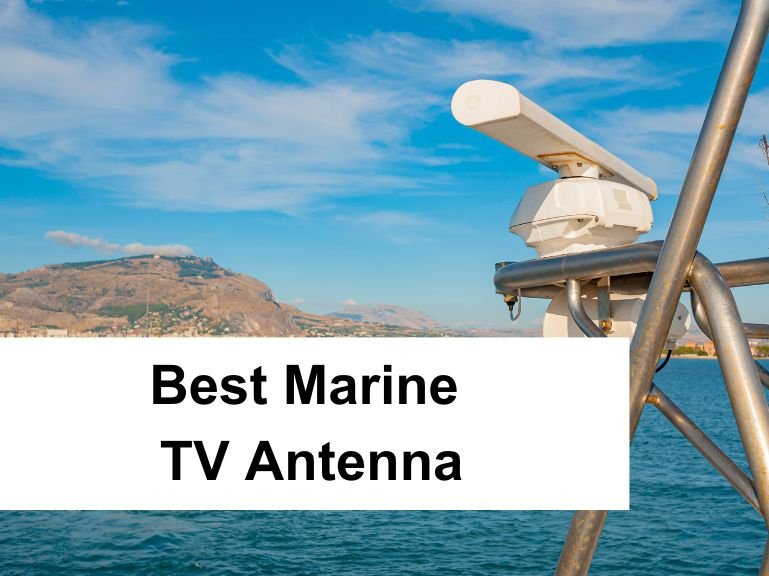Crystal-Clear TV Reception on the Open Seas: Discover the Best Marine TV Antenna
Boating enthusiasts and maritime adventurers know the importance of staying connected, even while navigating the high seas. A marine TV antenna is a critical component for entertainment and safety on board, offering a gateway to the world of digital broadcasts amidst the waves. Let’s dive into what makes these antennas a must-have for your maritime journeys.

Investing in a marine TV antenna isn’t just about catching your favorite shows; it’s about safety and improved reception. On the open water, staying updated with local news or weather forecasts can be life-saving. Plus, it’s an excellent way to entertain guests or keep kids engaged during long voyages.
Different Types Of Marine TV Antennas
Marine TV antennas come in various forms, each catering to different needs and situations:
- Off-air/Terrestrial Antennas: Ideal for areas with strong signal presence, these antennas are an affordable choice for boaters near cities or broadcast towers.
- Satellite Antennas: For those venturing far off the coast, satellite antennas offer consistent coverage, albeit with a subscription cost to services like Dish Network or DirecTV.
- Cable TV Antennas: Similar to terrestrial types but sourcing from cable providers, these are preferable for boaters seeking a broader channel selection.
Each type has its pros and cons, making the choice dependent on your cruising locations and entertainment preferences.
Marine TV antennas stand out due to their rugged construction and compactness. Designed to endure salt spray, high winds, and waves, they offer durability not found in standard TV antennas. Most come equipped with built-in amplifiers to boost signal strength, crucial for clear reception in challenging marine environments.
Choosing the Right Marine TV Antenna
Selecting the appropriate antenna involves several considerations:
- Type of Antenna: Rooftop antennas offer better reception but at a higher cost, whereas below-deck antennas are more affordable but have poorer reception.
- Antenna Size: Larger antennas provide better reception, while smaller ones are more compact.
- Price and Warranty: Balancing cost with the quality and warranty period is vital.
- Return Policy and Customer Service: Familiarize yourself with the return policy and assess the manufacturer’s customer service.
Installation and Maintenance of Marine TV Antennas
Proper installation and maintenance are key to the antenna’s longevity and performance:
- Installation: Mount the antenna in an appropriate location, following the manufacturer’s instructions.
- Maintenance: Regular cleaning and checking for damage help maintain optimal performance. Ensure connections are tight and free of corrosion.
How To Utilize A Marine TV Antenna
Maximizing the potential of your marine TV antenna requires proper setup and placement:
- Installation: Securely mount the antenna in an optimal location for clear signal reception.
- Connection: Use a cable or HDMI cord to connect the antenna to your television.
- Clear Surroundings: Ensure no obstructions around the antenna to maintain strong signal reception.
Worth of Marine TV Antennas
A marine TV antenna is a worthy investment for regular boaters. It provides entertainment and keeps you connected to crucial updates, especially in remote areas. These antennas are designed for marine use, ensuring safety and durability when properly maintained.
Installation and Receiver Requirements
Installing a marine TV antenna is straightforward. Choose a suitable location on your boat, follow the provided model-specific instructions, and you’re set to enjoy uninterrupted TV reception. Unlike terrestrial antennas, marine antennas are engineered to withstand the marine environment. No special receiver is required for most models, but it’s prudent to confirm with the manufacturer.
Antenna Range and Warranty
The range of a marine TV antenna typically varies between 20 to 30 miles, depending on the model. Most come with a warranty, usually covering defects in materials and workmanship. Always check the warranty details with the manufacturer for clarity
Conclusion
Choosing the right marine TV antenna is essential for enhancing your boating experience. Whether it’s for safety, entertainment, or staying informed, the right antenna makes a significant difference. Understanding the different types, their unique features, and the factors that influence their performance is key. Proper installation and maintenance ensure that your investment lasts longer and provides the best possible reception.
With this guide, you are now equipped to select and maintain the best marine TV antenna for your maritime adventures, ensuring a seamless blend of entertainment and safety while you navigate the open waters.
